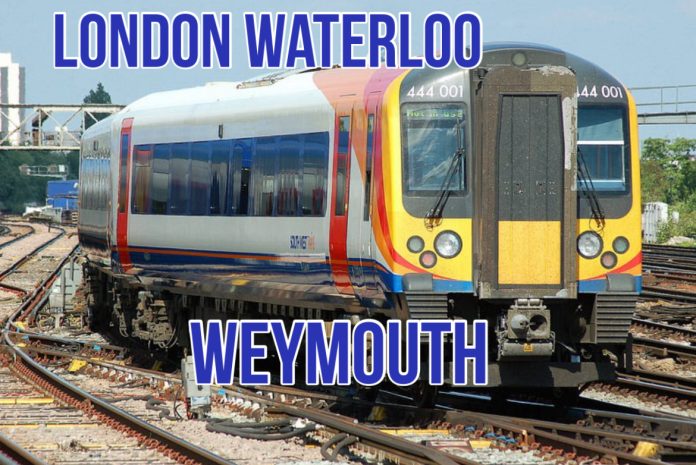The nationalisation of South Western Railway (SWR) marks a transformative moment in the future of Britain’s railways. The Labour government is set to announce that SWR, one of the UK’s largest commuter train operators, will come under public control in May. This decision signals the first major step in a broader nationalisation agenda promised by the Labour Party, reshaping the country’s railway infrastructure under the public ownership banner.
SWR operates services out of London Waterloo, one of the busiest stations in the UK, serving millions of passengers annually. Currently managed as a joint venture between First Group and MTR, a Hong Kong-based rail operator, SWR will transition to the Department for Transport’s Operator of Last Resort (DOHL) when its contract concludes in May. This move, first reported by the Financial Times, represents the initial phase of Labour’s nationalisation strategy, though it reflects a more measured approach compared to the ambitious timeline previously proposed by former Transport Secretary Louise Haigh.
A Deliberate Shift in Strategy
The decision to nationalise SWR highlights the Labour government’s pragmatic stance under new Transport Secretary Heidi Alexander. Alexander’s approach contrasts with her predecessor, Louise Haigh, who resigned last week. Haigh had been considering activating break clauses in other rail operator contracts, including Greater Anglia, which could have expedited the nationalisation process.
Alexander’s measured pace allows for a smoother transition, ensuring operational stability and financial oversight as the government implements its sweeping public ownership bill, which became law last week. This legislation provides the framework for transferring all rail operators to public ownership, a vision long championed by Haigh.
Nationalisation: A Gradual Process
SWR’s transition to public control follows a precedent set under the previous Conservative government. Several operators, including LNER, Northern, Southeastern, and TransPennine, were brought under public management after facing financial difficulties or operational failures. However, SWR’s case is notable for being a planned transition rather than a response to crises. This shift underscores the Labour government’s commitment to redefining the role of rail services as a public good.
When SWR joins the ranks of publicly managed operators, it will set the stage for the gradual unification of Britain’s railways under the Great British Railways (GBR) banner. GBR is a government initiative designed to streamline operations and create an integrated railway system, placing passengers at the heart of its operations.
Financial and Operational Context
SWR’s financial performance has been emblematic of broader challenges facing the UK’s rail sector. The operator recently reported an operating profit of £12.2 million for the last financial year, supported by a £140.9 million subsidy from the Department for Transport (DfT). This dependency on government subsidies reflects the declining revenues from traditional commuting patterns, as the COVID-19 pandemic accelerated shifts away from daily office commutes and reduced season ticket sales. Once one of the most profitable franchises, SWR had previously made significant payments to the government before these changes took hold.
By bringing SWR into public ownership, the government aims to reinvest profits into improving services, infrastructure, and affordability for passengers rather than distributing dividends to private stakeholders. This approach aligns with Labour’s broader vision for a railway system that prioritises public benefit over private profit.
Historical Context and Public Sentiment
The nationalisation of SWR is part of a broader public ownership movement that has gained traction in recent years. The collapse of the Virgin East Coast franchise in 2018 led to LNER’s transition to public control, setting a benchmark for subsequent cases. Public opinion has increasingly favoured renationalisation, with many passengers expressing frustration over rising fares, service disruptions, and perceived mismanagement under private operators.
SWR’s return to public hands is expected to resonate positively with commuters, particularly those who have experienced inconsistencies in service quality. The Labour government’s focus on public ownership seeks to rebuild trust in the railway network and deliver a service that prioritises reliability, efficiency, and sustainability.
Implications for the Future
The nationalisation of SWR is not merely a policy decision but a statement of intent. It marks the beginning of a transformative era for Britain’s railways, with significant implications for passengers, employees, and the wider economy. The move is expected to pave the way for further transitions as other operators are gradually brought into public ownership under the provisions of the new legislation.
Labour’s vision for the railways extends beyond ownership structures. Plans to integrate passenger services, enhance ticketing systems, and invest in green technologies are central to the government’s strategy. By creating a cohesive, state-run railway system, the government aims to address long-standing challenges while positioning the UK as a leader in sustainable transport.
Conclusion
The upcoming nationalisation of South Western Railway marks a pivotal moment in the evolution of the UK’s transport network. As the first operator to be nationalised under Labour’s administration, SWR’s transition represents both a fulfilment of campaign promises and the beginning of a broader transformation. While the road ahead is complex, the government’s commitment to a publicly owned, integrated railway system signals a renewed focus on delivering value and reliability for the millions who rely on these essential services every day.







